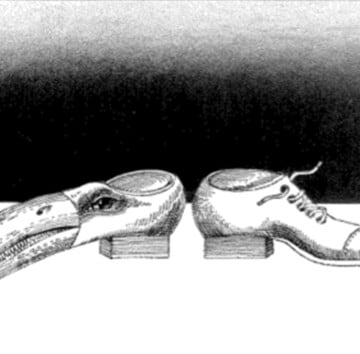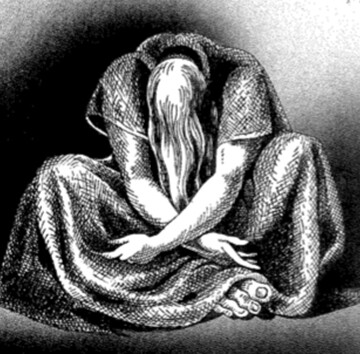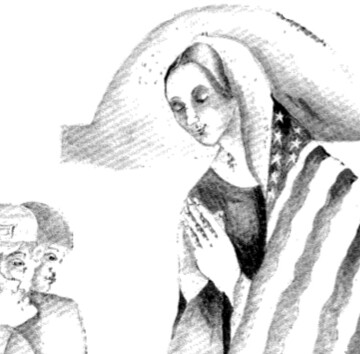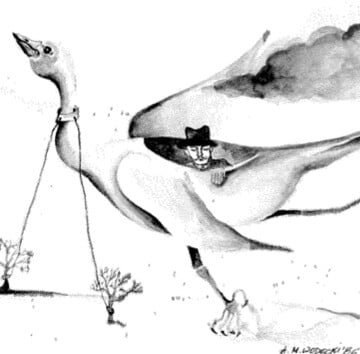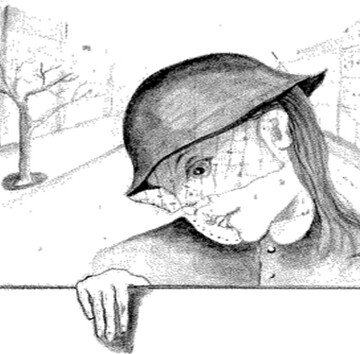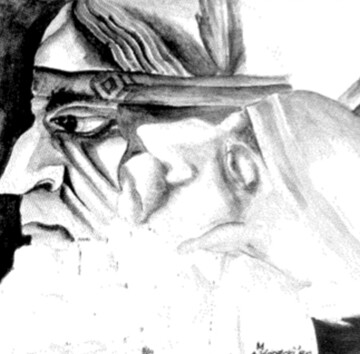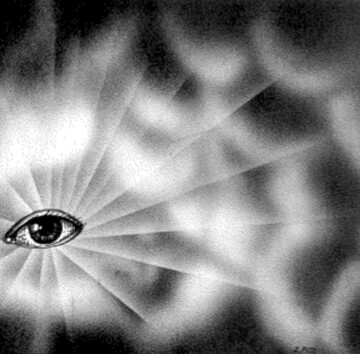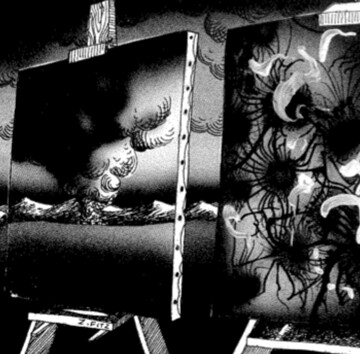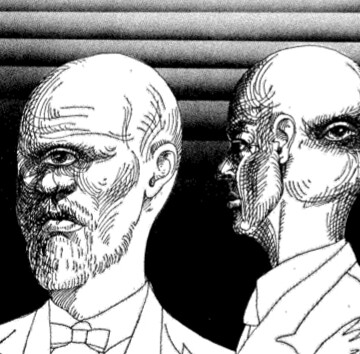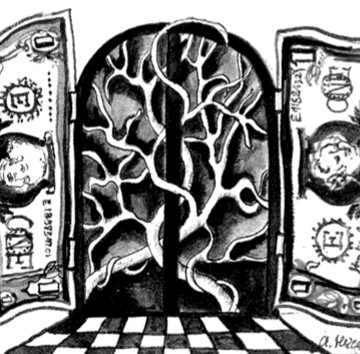Alberto Giacometti was almost a living caricature of The Modern Artist. Such a judgment would strike his biographer as unfair, but it cannot be helped. The popular mind has formed some definite ideas about how an artist behaves: he is above all shabby—wearing clothes he might have slept in, spattered with paint (or caked with...
Category: Reviews
Selling Out the Kids
Most parents, especially those with teenagers, know the increasing costs of having children, but in Pricing the Priceless Child, Viviana Zelizer investigates the declining economic value of American children during the past century. Zelizer charts this decline from 1870-1930, noting the simultaneous increase in the sentimental value of children. She notes that, starting in 1860,...
Getting America Right
American novelists no longer write about America. That, at least, was the judgment of many foreign writers who attended the recent PEN Conference. It would be hard to make the same complaint about our poets. In fact, it is hard to escape the feeling that a good many American poets are engaged in an exploration,...
The Gelded Age
“If the Model Boy was in either of these Sunday schools, I did not see him.” —Mark Twain What do men want? In the gloried 1950’s, Sports Afield and Rod and Gun exemplified a male ethos resting on the quest for game by the primeval hunting band. With Playboy, Hugh Hefner moved the American male...
Love and Death in the American West
“Let sixteen cowboys come sing me a song. . . . For I’m a young cowboy and I know I’ve done wrong.” —Anonymous, “The Cowboy’s Lament” The American West has become a place of simultaneous myth and reality. There is a West where zesty young men mounted on noble steeds occasionally rounded up some cattle...
Companion to Coleridge
In graceful prose not unworthy of his subject, the distinguished English biographer Lord David Cecil paints an endearing portrait of “St. Charles,” as Thackeray was later to call Lamb. Saint he was, certainly, and sinner, too. The death of Lamb’s mother at the hands of his intermittently mad sister, Mary, caused him lasting grief and...
Stage Props & Program Notes
Eugene O’Neill’s life was a purgatory, as he never ceased informing us. His final plays, those written or revised from 1939 on, leave us with a vision of him plodding at last toward the top of that inverted mountain, the man emerging from his lifelong torments and the artist from his befuddlements. O’Neill is unique...
Shotgun Marriage
“The Shadowy Female absorbing The enormous Sciences . . . “ —William Blake Reproductive control and genetic manipulation have been making the headlines for years. One day new developments in birth control herald a freer, happier world for women. The next day, knowledge also gained from those very same developments foretell a future of horror...
Lady and the Vamp
“No womman of no clerk is praised.” —Chaucer An old-fashioned historian can be forgiven for feeling a touch of empathy for the bewildered Egyptians upon whom Yahweh emptied the vessels of wrath some 3,500 years ago. The Hebrews’ God plagued the Egyptians for a matter of days, but the stern Minerva who reigns over academe...
Affliction and Redemption
Fyodor Dostoevsky is among the pioneers of modern literature. However, like so many of the pioneers—particularly T.S. Eliot—he is acknowledged with ambivalence and even reluctance. Like The Waste Land, Dostoevsky’s works are prized for their subtle exploration of modern despair and alienation. Like Eliot, Dostoevsky is celebrated as a daring technical innovator and a superb...
The Chapel and the Voting Booth
“I do not yet see the absolute necessity of extirpating the Christian religion from among us.” —Jonathan Swift I am sure it is possible to praise too highly James Reichley’s Religion in American Public Life, but it would take some doing. Reichley, a Senior Fellow at The Brookings Institution, has produced a superb historical and...
Refuting the Planners
Richard McKenzie, a member of the economics department of Clemson University, here assesses the probable impact of new government regulation of the economy under what politicians like to call “National Industrial Policy” (NIP). He sets forth the major legislative policy proposals promoted under this rubric, and he examines their probable effect upon international trade, capital...
Fathoming Seas of Red
Unlike the world of democratic politics with its ever-present television cameras and investigative reporters, the world of communism is a realm of mysteries and shadows, understood by few who do not actually hold power. Richard Staar and the 79 regional specialists who have contributed to this encyclopedic volume have performed an invaluable public service by...
Broken Eggshells & Winged Seeds
“Imaging . . . is properly the work of a poet; the [rest] he borrows horn the historian.” —John Dryden Here is an unAmerican story. A young man writes a successful novel. Thousands of Americans, in the oddest places, esteem it highly. So do the most reputable publishers in New York. When he attempts the...
True Grit
Tuska’s thesis is that Westerns are not attempts to portray the old West with documentary fidelity, nor do they merely reflect the attitudes of the American public. They are the creation of directors and producers, great and insignificant, men indifferent to historical accuracy and full of their own insights and biases. Furthermore, these insights and...
Bridge Out
It is impossible to read Gorham Munson’s The Awakening Twenties without thinking of Malcolm Cowley’s Exile’s Return, since both are memoir-histories of the 20’s. Munson, however, is concerned only with 1913-1924. “America will never be the same.” So opined the New York Globe after the official opening of the 1913 Armory Show. . . ....
Parent Abuse
As tales of child abuse are screamed out on the nightly news, pressures mount for a national policy. Adolescent children are taken away from parents who appear “too strict,” and state after state have passed laws on child abuse that include vague provisions for “mental health.” Parents are beginning to wonder exactly where they stand....
Iconoclast of the Center
The New Republic claims with some pride to be schizophrenic: it infuriates both the right and the left, while claiming subscribers from the elite of both wings. It has published one of the most damning articles yet on the Sandinista government, while likewise exposing the atrocities of the Contras. And what other magazine offers both...
Trouble in Paradise
The origin and nature of the state has been at the heart of political theory from the time of Plato and Aristotle. While speculations about man’s primal innocence in a state of nature cannot be taken seriously as science, they continue to influence political propaganda. Liberal philosophers like Rawls and Nozick continue to write about...
Small-Town Schizophrenia
“I see the rural virtues leave the land. “ —Oliver Goldsmith Garrison Keillor, the writer, has finally made it big. Five years ago a regional cult figure and occasional contributor to the New Yorker, Keillor has now vaulted on to the cover of Time and to the top of the New...
The Rights of Tradition
“Ah, kuinel, you see, Injun man ain’t strong like white man!” —William Gilmore Simms We are approaching an important centenary, though there probably will be little public notice amid the hoopla over the bicentennial of the Constitution. In 1888 Franz Boas joined the newly formed faculty at Clark University to become the first professor of...
A Fragile Blossom
Feng Jicai’s volume of short stories is truly a remarkable work. It is one of the first publications by a writer in the People’s Republic of China in which the writer has allowed people to be people. The reader does not find the stereotypical characters of proletarian literature in Feng’s stories; instead, these tales are...
Uncivil Rights
“It is better that some should be unhappy, than that none should be happy, which would be the case in a general state of equality.” —Samuel Johnson The best way to corrupt a value is to maximize it. That is one of the fundamental lessons of liberalism in the postwar period. Take rights. Push one...
In Turbulent Seas
Robert Ruark has nothing on Otto Scott for ability to provide simultaneous political commentary and African travelogue. A careful historian and shrewd observer with the ability to set forth his observations with apt parsimony, Scott has written a book eclectic in sweep, including incisive commentary on the state of Western morality, media and culture, and...
The Herd of Independent Minds
“The bookful blockhead . . . [w]ith his own tongue still edifies his ears, / And always listening to himself appears.” —Alexander Pope Behind Stephen Berg’s Singular Voices, a new anthology of contemporary native poets writing about their own work, is the voice-theory of poetry, which holds that a poet is valuable not for his...
Forget This Alamo
This is the kind of novel that inspires slick reviewers and writers of publisher’s blurbs to new outrages in inflated but tacky description: “lusty,” “brawling,” “pulsing with ambition,” “passion and greed,” “an epic saga.” The story begins in Mexico in 1927, with flashbacks going back to the turn of the century, and ends in 1982....
Straw Men and Ideologues
“It came burning hot into my mind, whatever he said and however he Battered, when he got me to his house, he would sell me for a slave.” —John Bunyan Kenneth Minogue explains at the outset that he prefers a narrow definition of “ideology”: the word refers not to all action-oriented systems of belief but...
Inside Jokes
From August 1941 until November 1943, George Orwell served as the producer and writer of a radio talk show beamed by the BBC out to India. Physically unfit for army duty, he considered the job to be his way of “doing his bit” in the war against Hitler. The image of Orwell as a chief...
Utopian on the Dole
An afternoon’s reading of Bolo’Bolo by “P.M.” leaves the reader wondering what the New York State Council on the Arts is doing giving public money to Columbia University to publish such books. A futuristic Utopian tract, Bolo’Bolo is as inane as it is self-indulgent. Its author, P.M., a slave to every cliche of the untutored...
Star of David
As Israel becomes increasingly important in world affairs, Jews and non-Jews alike increasingly want to understand the origins of the Israeli state and of the Zionist movement. This is volume one of the first scholarly biography of Chaim Weizmann. It provides a thoroughly researched account of how a Russian Jew from the Pale of Settlement...
Best-Sellers & Brown-Baggers
It is tempting to say that Mary Bringle’s Hacks at Lunch was written by a hack—at lunch or otherwise engaged. But so laconic a pronouncement would leave the reviewer open to charges of disingenuousness and flippancy; and, since some such judgment cannot be substantively avoided, it must be elucidated and qualified. The premise of this...
Between Sao Paulo and Tel Aviv
Sol M. Linowitz’s autobiography tells once again the classic story of the successful American. Son of a middle-class Jewish wholesale fruit dealer from New Jersey who was impoverished by the Great Depression, Linowitz attended Hamilton College on a partial scholarship, financing the rest of his education by waiting on tables, working in the college library,...
The Criminal Type
Iconoclasm is the poor man’s intellectualism. Challenge a traditional way of thinking and you can vault yourself instantly into the celebrity spotlight, with lucrative publishing deals, testimonies before congressional committees, and interviews on Good Morning America. Since the 1960’s the iconoclasts have held sway in the study of criminal behavior, ignoring important studies done in...
The Sheriff and the Goatman
“May not a man have several voices . . . as well as two complexions?” —Nathaniel Hawthorne In George Garrett’s stories the conflict often arises between a wild lone Outsider and a generally conscientious but insecure Establishment figure; in Peter Taylor’s stories the conflict is likely to take place between generations, the revolt of the...
Saints or Stockbrokers?
“As long as virtue was dominant in the republic so long was the happiness of the people secure.” —Robert E. Lee John P. Diggins raises various, often profound, questions about the moral foundations of America as a political society. Diggins is fond of calling attention to what he considers the underlying cultural tensions in American...
Before the Big Bang
“Oh hide the God still more!” —Alexander Pope These days orthodox Christians and skeptical physicists disagree over nothing—yet their disagreement is literally of the first importance. For the “nothing” that is at issue is the void that immediately preceded the Big Bang, the cosmic explosion 15 billion years ago in which the universe began. When...
Tales of Apocalypse
“Therefore nowe is it tyme to me To make endyng of mannes folie.” —The Last Judgement, York Cycle Plays Nothing seems very certain nowadays for writers of fiction. Traditional religious and moral values have been under attack for so long that many writers uncritically assume they are thoroughly discredited. Even much of the certainty of science...
Jolly Good Fellow
“The more I began to think about and read Coward, the more convinced I became that the history of British entertainment in the first half of this century was essentially the history of his own career.” With that observation, Sheridan Morley, drama critic and arts editor of Punch, begins his biography of Noel Coward. The...
Missionary to the Amazons
Controversy and intense media scrutiny marked Dee Jepsen’s 14 months as President Reagan’s Special Assistant for Public Liaison to women’s organizations, until she resigned in October 1983 to work for the unsuccessful reelection campaign of her husband. Senator Roger Jepsen of Iowa. President Reagan’s extemporaneous remark that “if it weren’t for women, men would still...
Natural Philosophy
At last there is a scientific work that justifies the term natural philosophy. In every discipline there should eventually come a time when it is possible to repeat the words of a great historic occasion in America: the man and the hour are met. Such events are increasingly rare in the sciences, where specialization and...
The Poet as Revolutionary
“Every artist,” wrote V.I. Lenin, “everyone who considers himself as such, has the right to create freely according to his ideals, independently of everything.” Who would have guessed that the author of this noble thought is none other than the originator of one of the world’s most repressive social systems! Even the most remote similarity...
Annus Mirabilis
In his State of the Union address of January 6, 1945, Franklin Roosevelt looked to the future with confidence: “The new year of 1945 can be the greatest year of achievement in human history,” he declared. “Nineteen forty-five can and must see the substantial beginning of the Organization of World Peace. This Organization must be...
Bloody Ivan
When historians draw up their lists of ruthless autocrats, Ivan the Terrible is usually near the top. When political scientists assert that totalitarianism is not a new phenomenon, they back up their claim with a reference to Ivan the Terrible, the 16th-century leader of Russia who dominated both church and state. This first Czar of...
Tocqueville Redivivus
“America does not repel the past or what it has produced.” —Walt Whitman Were some power, either republican or princely, to entrust me with a classroom of promising youth who were to be educated to become the best possible historians of the future—well, I would find the works of John Lukacs indispensable. Why? Simply because...
King, Queen, Knave—Mind, Brain, and Body
“Where so’er I turn my view All is strange, yet nothing new; Endless labour all along, Endless labour to be wrong.” —Samuel Johnson Epicurus had an answer for everything. The universe consisted of nothing except atoms and void; the qualities of matter and of our sensory experience—hardness, color, heaviness, etc.—were determined completely by the size,...
The Thousand and One Knights
Originally published in Catalan in 1490 and now newly translated by David H, Rosenthal, Tirant Lo Blanc is a prose masterpiece written by the Valencian nobleman Joanot Martorell and completed by Marti Joan de Galba after Martorell’s death. Written when the Catalan influence in Sicily, Rhodes, and other parts of the Mediterranean was still significant,...
The Luddite as Messiah
Jeremy Rifkin declares himself a heretic in this book, but he is more accurately described as a Cassandra and not a Huss or a Bruno. This “new age” doomsayer feels romantic impulses and expresses them with poetic skill, but his limited grasp of history, his absurd economic proposals, and his skewed philosophical perspective still show...
Revolution and Its Discontents
Winner of France’s Renaudot Prize, this autobiographical Bildungsroman is a first-person narrative of a young man from a Belgian village who begins as a seminarian and ends as a disillusioned anarchist. Under the direction of his widowed mother and the village priest, he enters the seminary in Louvain, where his study of the changing values...
A Stranger to His Kind
“Poetry,” declared T.S. Eliot, “is not a turning loose of emotion, but an escape from emotion; it is not an expression of personality, but an escape from personality.” More than one set of eyebrows has arched at that pronouncement. For surely we read in part to know the man behind the work. A blind bard,...
Embarrassment of Riches
“Semper inops quicumque cupit” (Whoever yearns is always poor) —Claudian During the 1950’s, an increasing number of middle Americans no longer took seriously the principle that honest work carefully performed is its own true reward. As the exhortative Vance Packard and a host of other social critics noted, these Americans defined themselves not by the...
